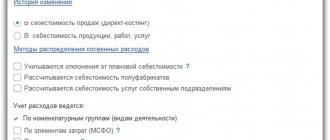How does a security deposit work?
The tenant makes a security deposit if there is a clause about it in the lease agreement. According to the law, the tenant has no such obligation. The argument “everyone does this when they rent real estate” does not work without writing it down on paper.
In contracts, the security payment is called differently - deposit, insurance payment, guarantee payment. The essence does not change from this.
The security payment works according to the rules from Art. 381.1 of the Civil Code of the Russian Federation. If the tenant delays the rent or damages the premises, the landlord withholds the required amount without letters or courts. If there were no violations or there is something left from the payment, at the end of the lease the tenant receives the money back. The landlord does not pay interest on the use of money. The payment amount is agreed upon. Usually it is equal to the rate for one or two months.
In the lease agreement, the parties can change and clarify the rules from the law:
✍ Write down more situations when the landlord writes off money. For example, the payment goes towards fines for violation by the tenant of the shopping center operating hours. Or the payment covers the landlord’s losses in case of the tenant’s early departure;
✍ Make the security payment non-refundable;
✍ Establish that the payment is written off against the last month’s rent;
✍ Oblige the tenant to replenish the payment within a certain period if the landlord makes a write-off;
✍ Write down how long the landlord returns the money to the tenant after the end of the lease.
The following is important here. In a dispute over a security deposit, the terms in the lease agreement will apply. Even if the tenant loses this money without receiving anything in return. The parties saw what they were signing; now they cannot refuse. This is the principle of freedom of contract from Art. 421 Civil Code of the Russian Federation.
If the lessor does not return the payment after the end of the lease, he has unjust enrichment under Art. 1102 of the Civil Code of the Russian Federation. Interest can be calculated on the payment amount for each day of delay. But, most likely, the tenant will have to go to court to claim the debt and penalties.
There is a different situation. The tenant paid, but something went wrong, and he never moved into the premises. As a result, the contract was terminated and the lease did not take place. Here the landlord is obliged to return even a non-refundable deposit - Art. 453 of the Civil Code of the Russian Federation.
Sample form of an agreement on making a security deposit (prepared by experts)
GUARANTEE:
This form has been developed in accordance with the provisions of § 8 ch. 23 Civil Code of the Russian Federation
Agreement on making a security deposit
[place of conclusion of the agreement]
[ day month Year ]
[full name/name], hereinafter referred to as “Party 1”, represented by [position, full name], acting on the basis of [Charter, Regulations, Power of Attorney], on the one hand and
[full name/name], hereinafter referred to as “Party 2”, represented by [position, full name], acting on the basis of [Charter, Regulations, Power of Attorney], on the other hand, collectively referred to as “ The Parties have entered into this agreement as follows:
1. Party 1 makes a security payment in favor of Party 2 in the amount of [amount in figures and words] rubles as security for its obligation to [indicate the monetary obligation of Party 1, for example, to compensate for losses or pay a penalty in case of violation of the contract (indicate its subject and details) or an obligation arising on the grounds provided for in paragraph 2 of Article 1062 of the Civil Code of the Russian Federation (hereinafter referred to as the obligation).
GUARANTEE:
Note. Shares, bonds, other securities or things defined by generic characteristics to be transferred under the secured obligation may be contributed to the collateral account. A security payment can be used to secure an obligation that will arise in the future.
2. The amount of the security payment is counted towards the fulfillment of the obligation in [specify circumstances].
3. The security payment must be returned to Party 1 in the following cases [the agreement may provide otherwise]:
— non-occurrence of the circumstances provided for in clause 2 of this agreement in [specify the period];
4. Party 1 is obliged to additionally make a security payment/Party 2 is obliged to partially return the security payment [specify in what part] under [specify the circumstances].
5. Interest established by Article 317.1 of the Civil Code of the Russian Federation is not accrued on the amount of the security payment [or provide otherwise].
6. This agreement is drawn up and signed in two authentic copies - one for each Party.
7. The agreement comes into force from the moment of signing and is valid for [specify period].
8. Statements, notifications, notices, demands or other legally significant messages with which this agreement associates civil consequences for the Parties, entail such consequences for this person from the moment the corresponding message is delivered to the Party or its representative.
9. Legally significant messages must be transmitted by [enter as necessary - postal, fax, electronic communication].
10. A message is considered delivered even if it was received by the Party to whom it was sent, but due to circumstances depending on it, it was not delivered to it or the Party did not familiarize itself with it.
11. Disputes and disagreements that may arise during the execution of this agreement will, if possible, be resolved through negotiations between the Parties.
12. If the Parties do not come to an agreement, disputes are resolved in court in accordance with the current legislation of the Russian Federation.
13. In all other respects that are not provided for in this agreement, the Parties are guided by the current legislation of the Russian Federation.
When the security deposit remains with the lessor
The landlord writes off money if the tenant violates the terms of the lease. It turns out that the main thing for the tenant is to carefully read the contract and not violate the obligations.
Here are the most common reasons for losing a security deposit.
Early departure from the premises
If it is written that the deposit remains as a penalty for the tenant’s unilateral refusal of the contract, so it will be. The tenant loses payment even when he didn’t break anything, but simply found a room with better traffic. Entrepreneurs can agree in this way under paragraph 3 of Art. 310 Civil Code of the Russian Federation. The Supreme Court confirmed that this is legal in paragraph 16 of Resolution No. 54.
The landlord may also not return the deposit if he asked the tenant to move out due to his fault. For example, for late rent or a fire in the premises.
However, the landlord is obliged to return the money if he kicks the tenant out. The courts support this, here is an example - case No. A41-85970/2019.
Forgot to return the premises according to the deed
When the lease ends, the tenant is obliged to move out and return the premises according to the deed. Until the act is drawn up, rent is charged for each day, even if the tenant has already removed the furniture and given the keys - Art. 622 of the Civil Code of the Russian Federation. The landlord will write off the debt from the deposit.
Damage to the premises
The tenant repairs a broken door or a broken chandelier at his own expense. It is his responsibility to make routine repairs from Art. 616 of the Civil Code of the Russian Federation. Otherwise, the lessor will record the damage in the return certificate, calculate the amount of repairs and deduct it from the deposit. For the landlord, the deposit is someone else's money, and he is unlikely to look for a cheaper contractor.
But the tenant is only responsible for repairs within the boundaries of his premises. For shared staircases, bathrooms and corridors - no. The owner is obliged to repair and wash the common property in the building - Art. 210 Civil Code of the Russian Federation.





